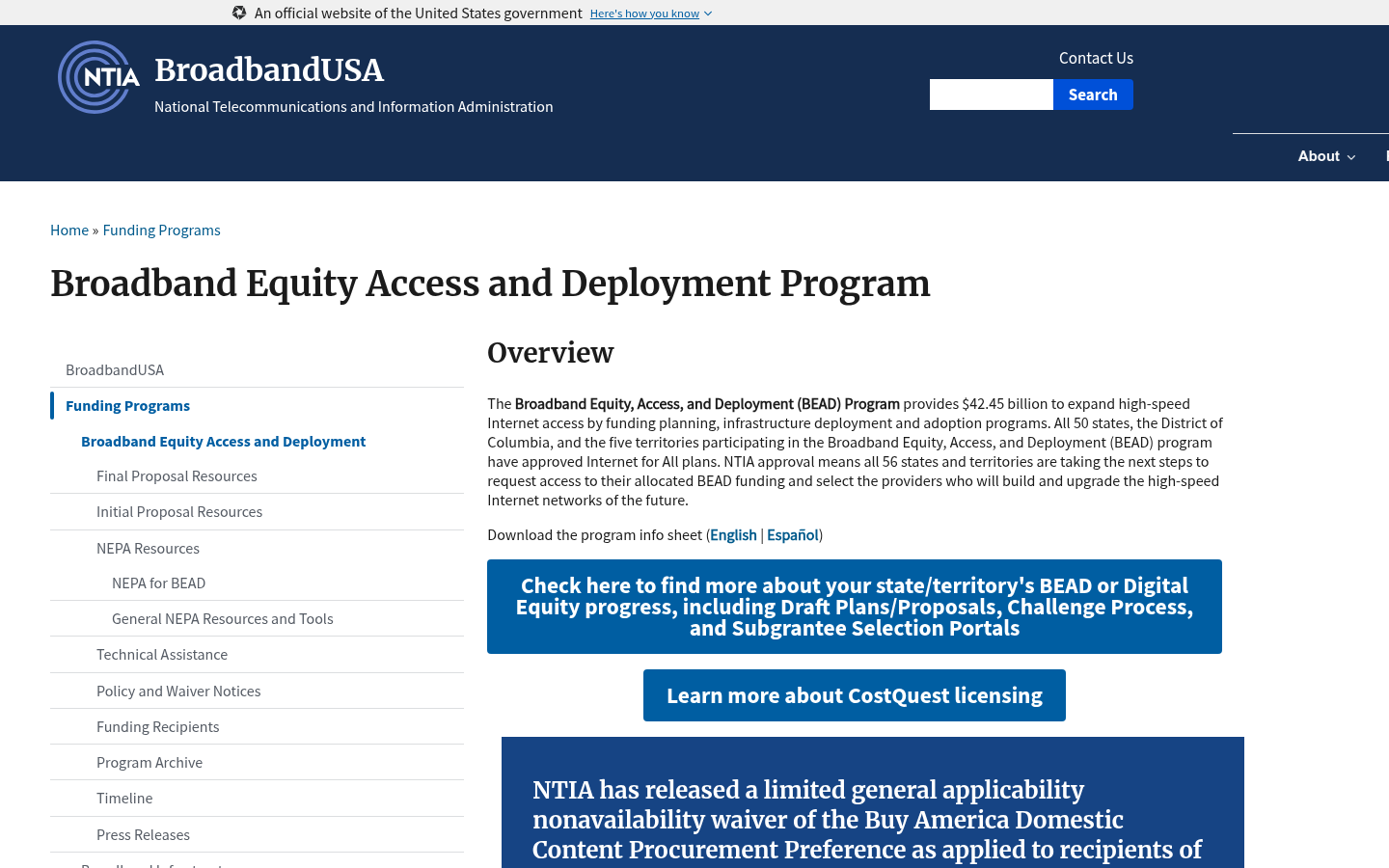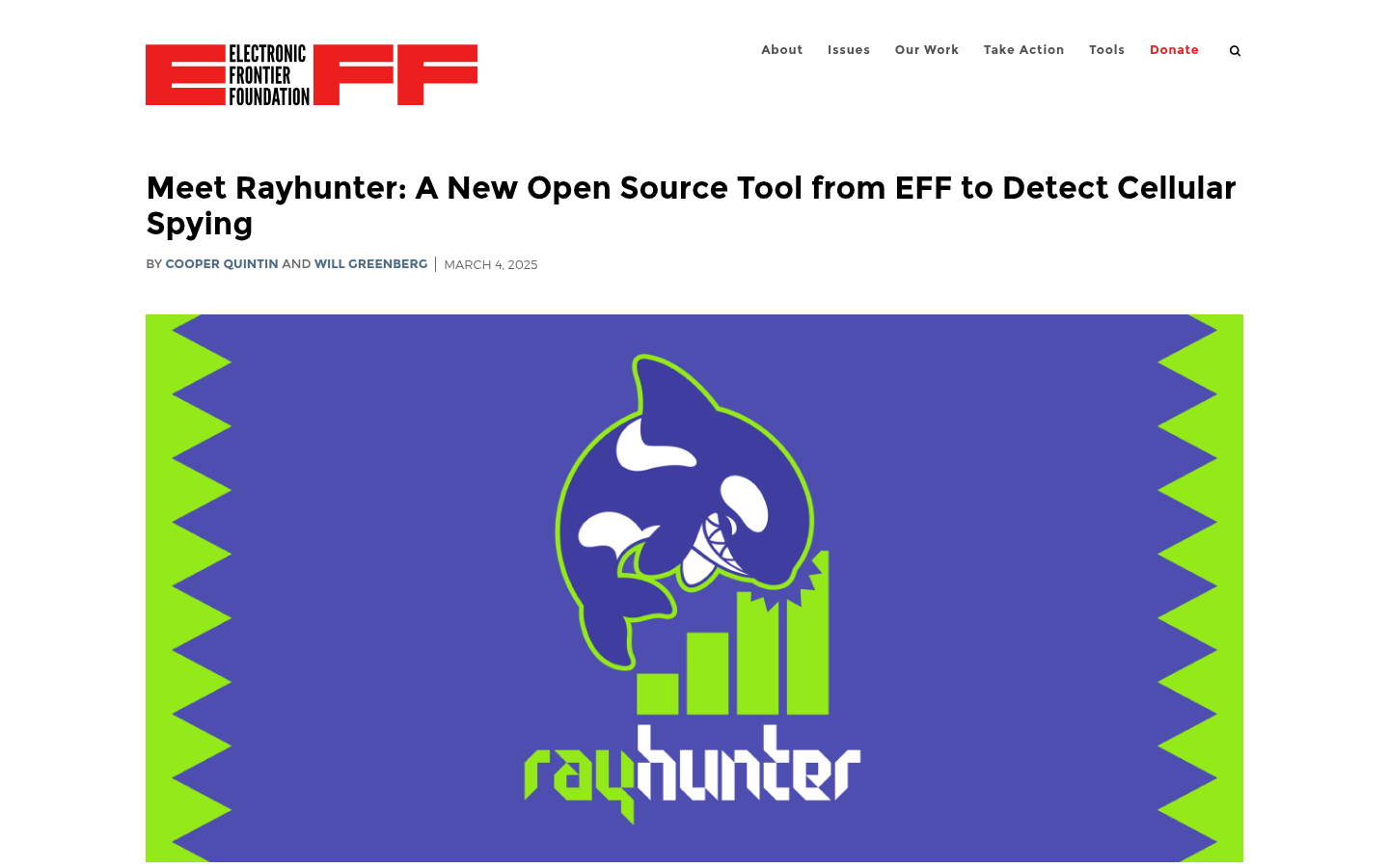Civic Tech Field Guide
Sharing knowledge and productively growing the fieldAdjacent Fields > Foundational layers > Connectivity - (58)
If people cannot easily connect to digital tools in an equitable manner, civic tech will fail to address existing power imbalances in society.
Suggested reading:
Showing 58 Results

MeshPoint One
European Union (EU)MeshPoint One believes that access to Internet is one of basic human rights. Their mission is to enable Internet access and improve the quality of life for people in disaster struck areas. Also by empowering people in rural communities to take action to build their own village telecoms to address disadvantage, become more sustainable and increase local control. Currently, they are focused on Syrian refugees in Croatia.

Jangala
United Kingdom of Great Britain and Northern Ireland (the)Jangala is a technology charity dedicated to providing essential internet access globally, with the goal of connecting 4 million people to the internet by 2030. Founded in 2015 as a volunteer initiative providing Wi-Fi to 5,000 people in the Calais Jungle refugee camp, Jangala offers a unique approach through its novel connectivity solutions, and takes great pride in its strong partnerships with international aid actors, grassroots organisations and public bodies.

Crowdapps
El. Benizeloy 82, Moschato 183 45Web apps and solutions for Municipalities & Regions

The Athens Wireless Metropolitan Network is a non-profit wireless community that aims to develop, use and promote a wireless broadband network in the wider Athens area.

FCC National Broadband Map
Washington, DCThis map displays where Internet services are available across the United States, as reported by Internet Service Providers (ISPs) to the FCC. The map will be updated continuously to improve its accuracy through a combination of FCC verification efforts, new data from Internet providers, updates to the location data, and—importantly—information from the public.

The Broadband Equity, Access, and Deployment (BEAD) Program provides $42.45 billion to expand high-speed Internet access by funding planning, infrastructure deployment and adoption programs.

Private Alert System
San FranciscoAlert people privately through a system that protect their privacy - without texts, emails or phone calls.

The 2022 Ranking Digital Rights Telco Giants Scorecard
740 15th Street, N.W., Suite 900 Washington, DC 20005Ranking Digital Rights's inaugural Telco Giants Scorecard reveals that telecom companies, despite being gatekeepers of the internet for most of the world, are less transparent overall and more susceptible to government demands than their Big Tech peers.

Myanmar Internet Project
Myanmar (Myăma)The Myanmar Internet Project was established in 2022 by a collective of researchers, practitioners and advocates with years of experience tracking developments in the Myanmar digital space.

Breakout program
CanadaThe Breakout Program is a $250,000 seed funding initiative launched by eQualitie to support innovations in digital communication that can withstand network shutdowns and censorship of global connectivity.

Broadband Consumer Labels
Washington, DCBroadband Labels (Internet de Banda Ancha Etiquetas - en español) are designed to provide clear, easy-to-understand, and accurate information about the cost and performance of high-speed internet services.

Starlink cellular connectivity in disasters
Redmond, WASpace X's Starlink unit was granted permission by the US FCC to activate a satellite connectivity option for Americans in hurricane zones

Community Network Map
United States of America (the)This map shows municipal networks across the United States.

Open Measurement Gatherings (OMG)
2025 M Street Northwest, Downtown, Washington, DC 20036, USAConvening internet measurement groups with an established practice of working in the open to collaborate and converge on best practices, methodologies, and complementary approaches for the collecting of data around internet censorship.

The FRIDA Program site is the platform that collects the types of funds to which you can apply and the projects financed since 2004.

National Digital Inclusion Alliance
Columbus, OH, USANational Digital Inclusion Alliance advances digital equity by supporting community programs and equipping policymakers to act.

Portable Network Kits
New York City, NY, USAThe Portable Network Kit (PNK) is a wireless network in a suitcase that helps people understand how to build their own mini-internet – and with it, how the internet works and might be owned and governed more equitably.

Created by NetFreedom Pioneers, the NKITI is designed to lower the entry barriers for technical individuals and organizations seeking to develop new information access solutions for the DPRK, and to serve as a launchpad for a new wave of technology-driven and DPRK-focused organizations.

Индекс связности сети
Russian Federation (the)Общество защиты интернета (ОЗИ) проводит мониторинг связности в Сети. Индекс связности обновляется ежедневно и чем он больше — тем лучше.


Red Hook WiFi
Red Hook, Brooklyn, NY, USARed Hook WiFi, a project of Red Hook Initiative (RHI), is a community-led effort to close the digital divide.

We work with communities to build the internet infrastructure and skills they need to participate fully in a digital society

The report is based on a survey of 7,500+ civil society organizations (CSOs) from 136 countries who answered questions about the barriers that they, and the communities they serve, face when it comes to digital equity.

the critical infrastructure lab aims to create space to co-develop alternative infrastructural futures that center people and planet over profit and capital.

City of Seattle Digital Equity Grants
Seattle, WA, United States of America2023 applications for digital equity grant opportunities from the City of Seattle are now open for organizations and community groups looking to help close the digital divide. This year, the City is offering $545,000 for qualifying projects with Technology Matching Fund (TMF) grants.

Colorado Broadband Hub
ColoradoThe Colorado Broadband Office (CBO) leads the statewide effort to expand broadband coverage and quality for all Coloradans and coordinates all broadband efforts for Colorado.

Starshield leverages SpaceX's Starlink technology and launch capability to support national security efforts. While Starlink is designed for consumer and commercial use, Starshield is designed for government use, with an initial focus on three areas:

BLVD Harambee EII
Detroit, MIThe Equitable Internet Initiative (EII) is a collaboration between the Detroit Community Technology Project and a network of community organizations including BLVD Harambee.

The Markup's ISP investigation data
New York CityOpen data from an investigation of disparate outcomes in internet deals across 38 major cities in the United States.

City of Boston Digital Equity Assessment
1 City Hall Square, Boston, MA, United StatesThis study documents the rise of competitive broadband service in Boston; describes steadily increasing City efforts to close gaps in broadband affordability, devices, and skills; characterizes the remaining gaps in these areas as defined by stakeholders and available data; and makes near-term policy recommendations to address these gaps in light of current federal funding opportunities

Community Tech NY
New York City, NY, USACommunity-owned internet infrastructure

Database of US States with Dedicated Broadband Offices, Task Forces, Agencies, or Funds
United States of America (the)by Pew Charitable Trusts

Measurement Lab is seeking three Research Fellows to expand Internet performance research beyond the measurement and optimization for bandwidth. Fellows will utilize M-Lab’s longitudinal, open dataset and/or platform to identify under-recognized Internet performance metrics that can be used to improve end user performance.

Digital Stewards Detroit
4126 3rd Avenue, Detroit, Michigan 48201, USAThis training prepares teams of community organizers, people with construction skills, and techies to design and deploy communications infrastructure with a commitment to the Detroit Digital Justice Principles.

Open Tech Fund (OTF)
2025 M Street Northwest, Downtown, Washington, DC 20036, USAWe support the research, design, development, and deployment of technology-focused projects that counter online censorship and combat repressive surveillance, to enable global internet users to exercise their fundamental human rights online.

San José Digital Inclusion Fund
San Jose, California, USASan José’s ambitious goal is to bring broadband connectivity and digital skills to 50,000 households over the course of the next decade - and this initiative explicitly earmarks funding to achieve this goal.

The Internet Master Plan NYC
New York CityThe Internet Master Plan is a new vision for broadband infrastructure and service in New York City.

IP Observatory
Monash University, Wellington Rd, Clayton VIC, AustraliaInternet insights for social good

The Cost of Shutdown Tool (COST)
Pakistana data-driven online tool that to allows us to quickly and easily estimate the economic cost of Internet disruptions

Michigan Moonshot
Michigan, USAThe Michigan Moonshot aims to leverage public and private partnerships to connect everyone in rural Michigan, regardless of geography.

BRCK
iHub NairobiAccess the internet simply and reliably where you are. BRCK is a rugged, self powered, cloud enabled wifi hotspot router with built in fail-overs.

Netfreedom Pioneers
CaliforniaWe are a technology nonprofit developing innovative anti-censorship tools and sending life-changing information anywhere the Internet doesn’t reach.










